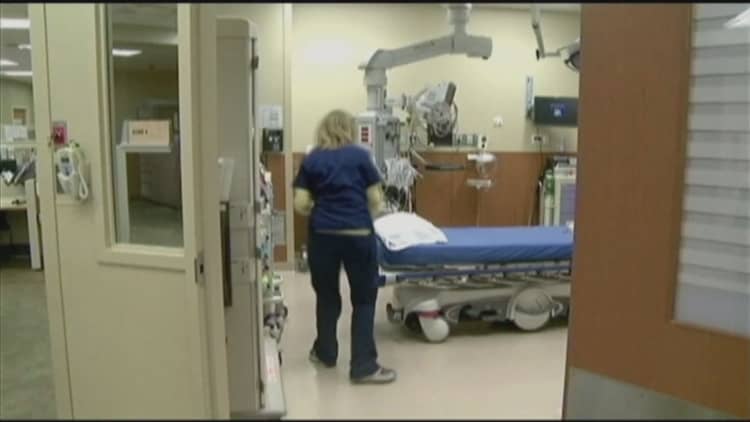
Go to the doctor or hospital when you're sick in the hopes of getting better, and you might end up dead, instead.
A new study estimates that medical errors are actually the third-leading cause of death in the United States, responsible for a whopping 251,454 fatalities in 2013.
Only heart disease and cancer, which respectively killed 611,000 people and 585,000 people that year, outpaced medical errors, according to the study published in the medical journal The BMJ.
The estimates would indicate that medical errors outpaced chronic lower respiratory disease, which killed 147,000 people in 2014, accidents, which killed 136,053 people, and stroke, which ended 133,103 lives, according to federal Centers for Disease Control and Prevention data.
The study's authors — professor Martin Makary and research fellow Michael Daniel, both of Johns Hopkins — said that their findings are based on studies conducted since 1999, and extrapolate that data to the total number of U.S. hospital admissions in 2013.
Even so, they wrote, "We believe this understates the true incidence of death due to medical error because the studies cited rely on errors extractable in documented health records and include only inpatient deaths."
The authors contend that death from medical error has been understated, in large part, because such error by health providers is not included on death certificates.
Nor is medical error listed in rankings of cause of death by agencies such as the CDC, which is based on death certificates filled out by doctors, medical examiners, coroners and funeral directors.
There is no official disease code for medical error, and death certificates rely on such codes, the authors pointed out.
"As a result, causes of death not associated with an ICD code, such as human and system factors, are not captured," according to The BMJ study.
The authors called for better reporting of medical error on death certificates.
Medical error is defined as an unintended act, one that does not achieve intended outcome, failure of planned action or errors of execution, or deviation from the process of care that could result in harm to the patients.
The study's authors cited the case of a young woman who was recovering well from transplant surgery, but then was readmitted to the hospital "for non-specific complaints that were evaluated with extensive tests, some of which were unnecessary, including a pericardiocentesis."
"She was discharged but came back to the hospital days later with intra-abdominal hemorrhage and cardiopulmonary arrest. An autopsy revealed that the needle inserted during the pericardiocentesis grazed the liver causing a pseudoaneurysm that resulted in subsequent rupture and death," the authors wrote.
"The death certificate listed the cause of death as cardiovascular," they said.
The authors wrote while "human error is inevitable" and "we cannot eliminate human error, we can better measure the problem to design safer systems mitigating its frequency, visibility and consequences."
They said there are three strategies which should be deployed to reduce the numbers of deaths from medical error. "Making errors more visible when they occur so their effects can be intercepted; having remedies at hand to rescue patients; and making errors less frequent by following principles that take human limitations into account," the authors wrote.




